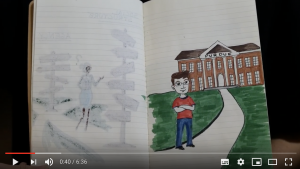In this episode, Amy Guptill, Professor of Sociology at The College at Brockport, State University of New York, discusses her recent discovery of Niklas Luhmann and systems theory. In particular, Amy reflects on how Luhmann avoids some of the negatives associated with his intellectual mentor Talcott Parsons and provides a powerful tool to better conceptualize food production and consumption.
*This is the final of three GTaC episodes hosted by Alysha Rios, undergraduate sociology major at SUNY Brockport. Thanks Alysha.
Podcast: Play in new window | Download
Subscribe: RSS



